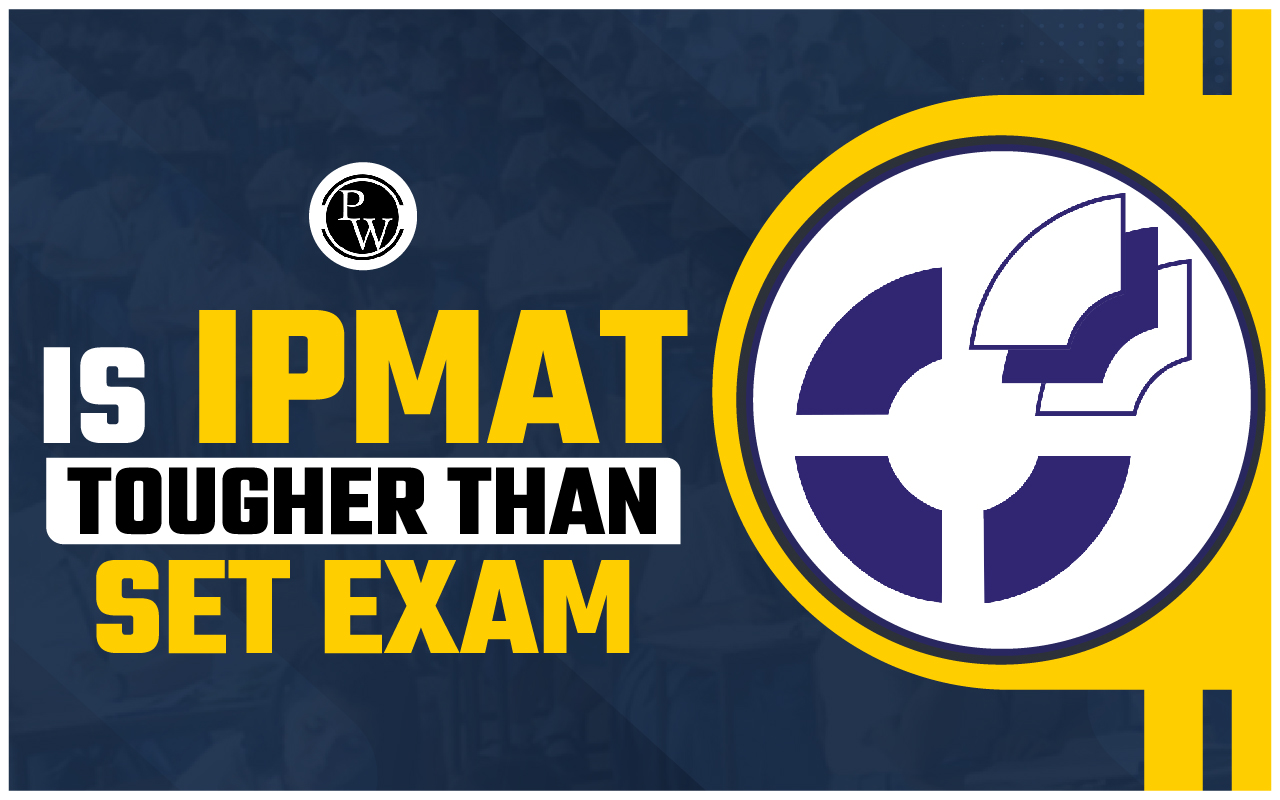
Prepare for IPMAT in 6 Months: It is quite achievable to achieve success in IPMAT exam with the right mindset, structured approach, and disciplined execution. IPMAT, conducted by IIM Indore and IIM Rohtak, tests a candidate's aptitude in Quantitative Ability, Verbal Ability, and Logical Reasoning. With competition increasing each year, a smart and efficient strategy is essential to stand out.
Candidates can check here for a 6-month preparation plan that balances concept-building, mock test practice, and time management. Whether you're starting from scratch or looking to sharpen your skills, these expert-backed tips will help you stay focused, improve performance, and ace IPMAT 2025.
Overview of IPMAT Exam
IIM Indore conducts the IPMAT for admission to its 5-year Integrated Management Program. The exam includes three sections: Quantitative Ability, Logical Reasoning, and Verbal Ability. Key topics include Algebra, Percentages, and Probability in Quant; Data Interpretation and logic-based questions in LR; and Grammar, Vocabulary, and Reading Comprehension in VA. The paper features both MCQs and short answer questions.
|
Overview of IPMAT Exam |
|
|
Components of IPMAT Exam Pattern & Syllabus |
IPMAT Syllabus & Pattern |
|
Total Questions |
100 |
|
Total Sections |
3 |
|
Total questions in Section: Verbal Ability & Reading Comprehension (All MCQ) |
50 |
|
Total Questions in Section: Quantitative Ability MCQ type -Quantitative Aptitude, Data Interpretation, and Logical Reasoning |
25 |
|
Total Questions in Section: Quantitative Ability Short Answer (SA) type -Quantitative Aptitude, Data Interpretation, and Logical Reasoning |
25 |
|
Time duration |
120 minutes |
|
Scoring pattern |
+4 marks for each correct answer |
|
Negative Marking (Only for MCQs) |
-1 mark for the wrong answer |
Also Read: IPMAT 2025 Application
Importance of IPMAT Study Plan
Creating a well-structured study plan is crucial when preparing for the IPMAT exam within a six-month window. It brings clarity, discipline, and direction to your preparation, helping you stay focused and efficient. A strategic plan ensures that every topic is covered on time, reducing last-minute stress and boosting confidence. Here’s why a solid study plan makes all the difference in a six-month IPMAT preparation journey:
-
Structured Preparation: A well-planned schedule helps candidates organize their study time, set realistic goals, and ensure balanced coverage of all exam sections.
-
Effective Time Management: Dividing the syllabus into manageable tasks prevents last-minute pressure and helps maintain steady progress.
-
Focus on Weak Areas: A study plan helps identify strengths and weaknesses, allowing candidates to target and improve low-performing topics.
-
Consistency & Practice: Regular study and practice boost accuracy and speed, crucial for cracking a time-bound exam like IPMAT.
-
Personalized Learning: Candidates can tailor the plan to match their learning pace, available time, and preferred study style for maximum efficiency.
Also Read: How to Apply for IPMAT Indore
IPMAT Preparation in 6 Months: Subject-Wise Strategies
For effective preparation for the IPMAT exam, candidates should adopt subject-specific strategies for each section. Tailoring your approach based on the nature and difficulty of each subject ensures more focused and result-driven preparation. With clear section-wise planning, candidates can improve accuracy, manage time better, and strengthen weak areas. Here are some useful strategies candidates can surely follow:
|
IPMAT Preparation in 6 Months: Subject-Wise Strategies |
||
|
Sections |
Strategy |
Details |
|
Quantitative Ability |
Practice Diverse Concepts |
Solve questions from Algebra, Logarithms, Sequences & Series, Percentages, Probability, Averages, and other key topics regularly. |
|
Conceptual Clarity |
Build a strong foundation in Class 9–10 level Math, including Arithmetic, Geometry, Algebra, Trigonometry, Modern Math, Number System, and Mensuration. |
|
|
Verbal Ability |
Reading Comprehension |
Develop reading habits using newspapers, books, and magazines to improve comprehension skills and vocabulary. |
|
Grammar and Vocabulary |
Focus on Grammar, Word Meaning, Vocabulary, Parajumbles, Fill in the Blanks, Sentence Completion, Synonyms, and Antonyms. |
|
|
Logical Reasoning |
Regular Practice |
Practice reasoning and data interpretation questions consistently to boost speed and accuracy. |
|
Time Management |
Work on solving questions within set time limits to improve efficiency during the exam. |
|
Importance of Mock Tests in IPMAT Preparation
Mock tests are a powerful tool for boosting your IPMAT performance. They help you experience the exam environment, build confidence, and refine your strategy over time. Here’s how mock tests contribute to effective preparation:
-
Simulate Real Exam Conditions: Familiarize yourself with the exam format, pressure, and time constraints.
-
Improve Time Management: Learn how to allocate time effectively across sections.
-
Track Progress: Identify weak areas and monitor your improvement with each test.
-
Boost Accuracy and Speed: Frequent testing enhances your question-solving efficiency.
-
Strengthen Strategy: Learn from mistakes and improve your approach by analyzing detailed solutions.
-
Stay Exam-Ready: Taking weekly mocks keeps your preparation consistent and focused.
Also Read: IPMAT Eligibility Criteria 2025
Revision Strategy for the Last 2 Months
The final 60 days are critical for consolidating what you’ve learned. A structured revision plan helps reinforce concepts, minimize errors, and maximize confidence. Here’s how to make the most of your revision time:
-
Review Core Concepts: Revisit formulas, shortcuts, grammar rules, and key reasoning patterns.
-
Revise from Notes: Use summaries, flashcards, and personal notes for quicker retention.
-
Practice High-Weightage Topics: Focus on frequently asked and scoring areas in each section.
-
Analyze Past Mocks: Go through previously taken mock tests and learn from mistakes.
-
Take Sectional Tests: Practice individual sections under timed conditions for better speed and focus.
-
Stay Consistent: Stick to a daily revision routine and maintain balance across all three subjects.
Join PW IPMAT Classes to access live lectures, recorded video lessons, doubt clarification, updated DPPs, and mock tests with performance analysis.
Prepare for IPMAT in 6 Months FAQs
Can I prepare for IPMAT in 6 months?
What are the main sections in the IPMAT exam?
How important are mock tests in IPMAT preparation?
What is the exam pattern for IPMAT 2025?
How should I revise in the last 2 months before the exam?










